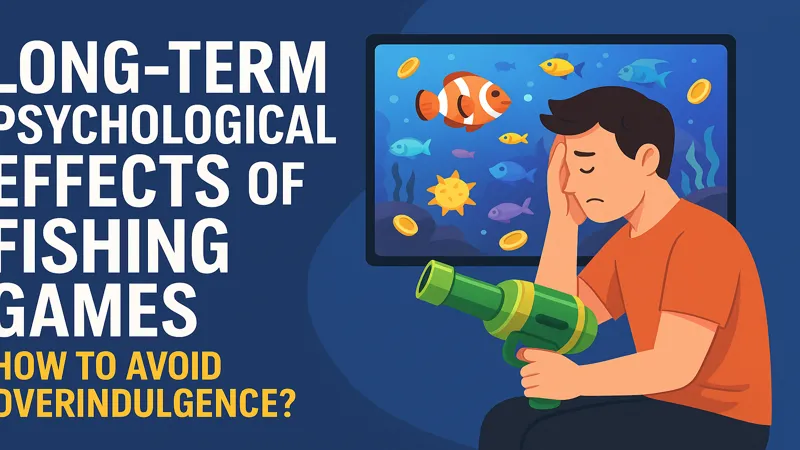
Introduction: The Hidden Impact Behind the Cannon
Fishing games, known for their vibrant visuals, fast-paced shooting, and arcade-style fun, have become a go-to choice for casual and hardcore players alike. Platforms like Dubai7 offer immersive experiences with titles like Ocean King, Monster Awaken, and Fish Hunter. While the gameplay may seem harmless at first, long-term engagement with fishing games can carry psychological consequences, especially for players unaware of their behavioral patterns.
This article explores the mental effects of prolonged fishing game sessions and offers practical solutions to maintain a healthy balance between enjoyment and addiction prevention.
The Dopamine Trap: Why It Feels So Good to Keep Playing
Fishing games utilize variable reward schedules, similar to slot machines. When you destroy a fish and win coins, your brain receives a surge of dopamine, reinforcing the behavior. Over time, this can:
- Create reward dependency, where players crave constant stimulation
- Lead to binge sessions, especially after wins or losses
- Foster a false sense of control, especially when using powerful cannons or “special weapons”
On Dubai7, some users report spending hours chasing high-value fish without realizing the toll on their concentration or finances.
Signs of Overindulgence to Watch Out For
| Behavior | Warning Sign |
|---|---|
| Playing for 2+ hours daily | Time distortion and neglecting responsibilities |
| Chasing after big losses | Emotional investment and compulsive risk-taking |
| Playing to “numb” stress | Using games as an emotional escape |
| Skipping meals/sleep to play | Physical health deterioration |
| Mood swings based on game results | Mood-dependent behavior patterns |
If you identify with two or more behaviors above, it may be time to reassess your gaming habits.
Why Fishing Games Can Be More Addictive Than Slots
Unlike passive slots, fishing games offer active participation:
- Players choose targets
- Select weapons
- Adjust power levels
- React to boss appearances
This illusion of control combined with audiovisual effects keeps the brain hyper-engaged. On Dubai7, players can even access “auto fire” mode, which can prolong sessions unintentionally when left running.
5 Tips to Prevent Overplaying and Regain Control
1. Set Time Limits
Use a timer or the built-in gaming limits available on Dubai7 to restrict session length.
2. Establish a Coin Budget
Never deposit more than you can afford to lose. Pre-load your balance and avoid mid-session top-ups.
3. Use “Demo Mode” as a Cooldown
Dubai7 offers free play options. Use these for practice or to decompress between real bets.
4. Avoid Playing Late at Night
Gaming when tired weakens impulse control, increasing the likelihood of over-betting.
5. Track Mood & Outcomes
Keep a journal or use apps to monitor how your emotions correlate with win/loss patterns.
FAQ: Fishing Games & Mental Health
Q1: Are fishing games truly addictive?
Yes. Due to their interactive nature and unpredictable reward system, they can trigger addiction pathways, especially for impulsive players.
Q2: How is this different from regular mobile games?
Fishing games on Dubai7 involve real money, making the stakes and emotional engagement higher.
Q3: Can I get help if I suspect I’m overindulging?
Absolutely. Most platforms offer self-exclusion, gaming limit tools, or support hotlines.
Q4: Is “auto-fire” mode a sign of addiction?
Not inherently, but over-reliance on it may indicate passive engagement or prolonged sessions.
Q5: Should I stop playing altogether?
Not necessarily. Awareness and moderation are key. Fishing games can be fun when approached responsibly.
